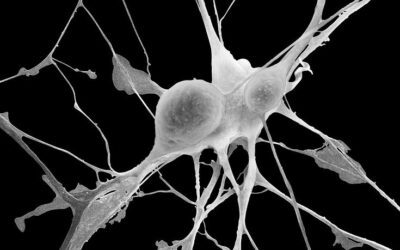Can Diet Cure Depression?

The gut-brain connection, also known as the gut-brain axis, has emerged as a fascinating area of research in the field of brain-based medicine. This bidirectional communication pathway between the gastrointestinal tract and the central nervous system has been found to play a significant role in mental health and overall well-being. This article explores the intricacies of the gut-brain axis and how brain-based medicine approaches are leveraging this connection to support digestive and mental health.
The Anatomy of the Gut-Brain Axis
- Vagus Nerve: The vagus nerve, the longest cranial nerve, serves as a direct communication link between the gut and the brain. It transmits signals in both directions, allowing the brain to influence digestive function and the gut to impact brain activity.
- Enteric Nervous System: Often referred to as the “second brain,” the enteric nervous system is a complex network of neurons embedded in the gut wall. It can function independently of the central nervous system and plays a crucial role in regulating digestive processes.
- Microbiota-Gut-Brain Axis: The trillions of microorganisms inhabiting the gut, collectively known as the gut microbiota, have been found to communicate with the brain via the vagus nerve, immune system, and various metabolic pathways. This communication axis is known as the microbiota-gut-brain axis.
The Impact of Gut Health on Mental Well-being
- Neurotransmitter Production: The gut microbiota plays a significant role in the production of neurotransmitters, such as serotonin, dopamine, and GABA, which are crucial for regulating mood, cognition, and behavior.
- Inflammation: Gut dysbiosis, an imbalance in the gut microbiota, can lead to increased intestinal permeability and systemic inflammation. This inflammation has been linked to various mental health conditions, including depression, anxiety, and neurodegenerative diseases.
- Stress Response: The gut-brain axis is intimately involved in the body’s stress response. Chronic stress can disrupt the gut microbiota and lead to gastrointestinal disorders, which in turn can exacerbate mental health issues.
Brain-Based Medicine Approaches to Support Gut-Brain Health
- Nutritional Interventions: Brain-based medicine practitioners often emphasize the importance of a nutrient-dense, anti-inflammatory diet to support gut health and mental well-being. This may include recommendations for probiotics, prebiotics, and specific nutrients known to support the gut-brain axis.
- Stress Management: Given the impact of stress on gut health and mental well-being, brain-based medicine approaches often incorporate stress reduction techniques, such as mindfulness meditation, deep breathing exercises, and cognitive-behavioral therapy.
- Microbiome Modulation: Emerging research suggests that targeted interventions, such as fecal microbiota transplantation and the use of psychobiotics (probiotics with mental health benefits), may hold promise for modulating the gut microbiota and influencing brain function.
- Integrative Therapies: Brain-based medicine practitioners may also recommend integrative therapies, such as acupuncture, massage, and herbal medicine, to support gut health and promote overall well-being.
While the gut-brain axis is a complex and evolving field of study, brain-based medicine approaches are at the forefront of translating these insights into practical, personalized interventions. By addressing gut health as a key component of mental well-being, brain-based medicine practitioners aim to provide a holistic approach to optimizing brain function and promoting overall health.
As always, it’s essential to consult with a qualified healthcare provider to determine the most appropriate interventions for your individual needs and circumstances. By working with a brain-based medicine practitioner, you can develop a comprehensive plan to support your digestive health, mental well-being, and overall quality of life.
Types of Therapy


























0 Comments